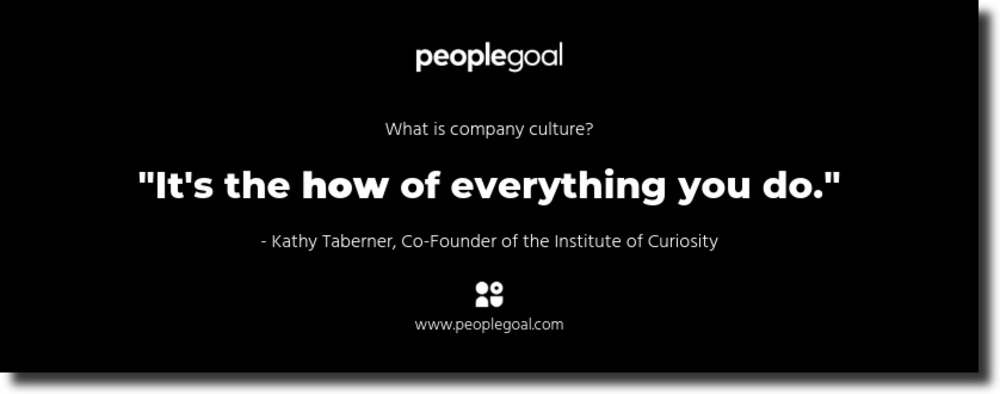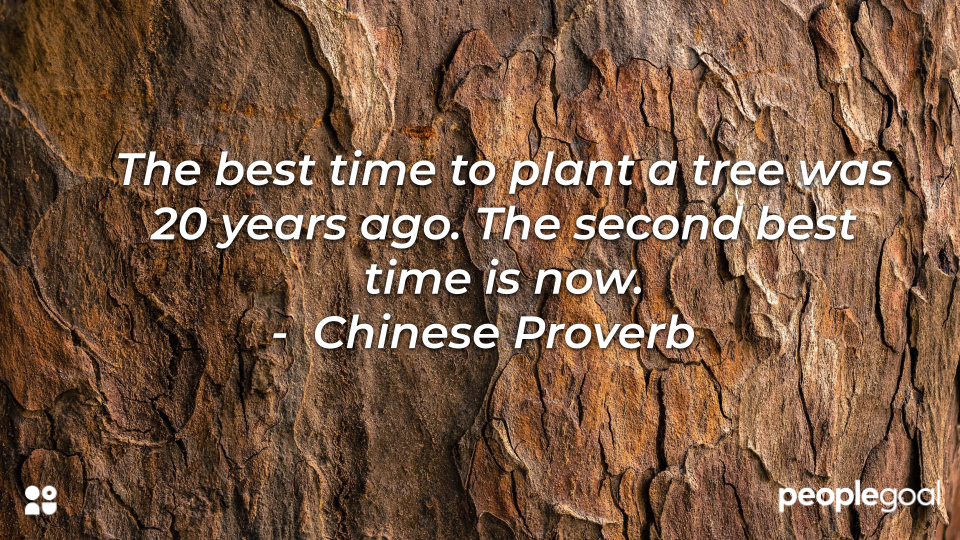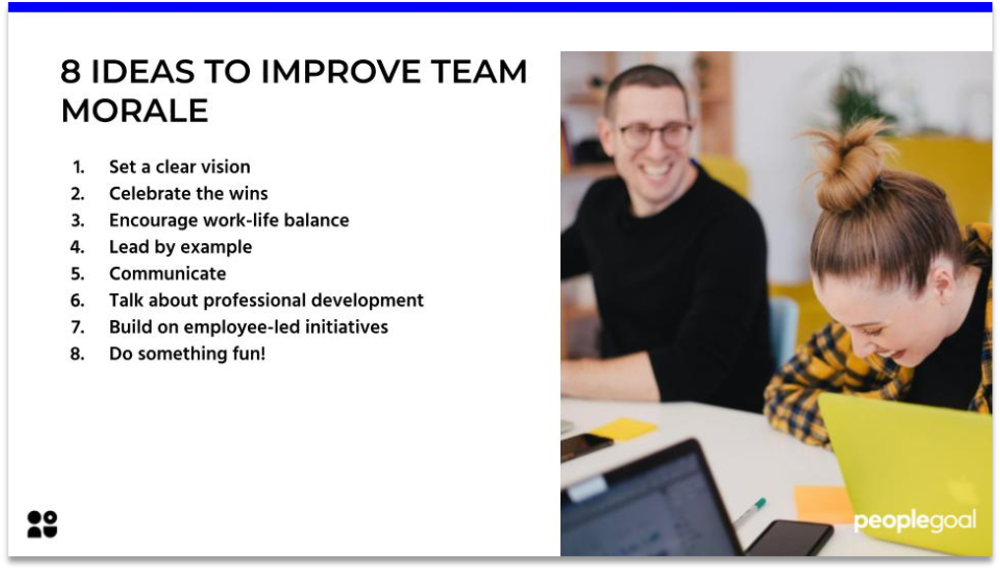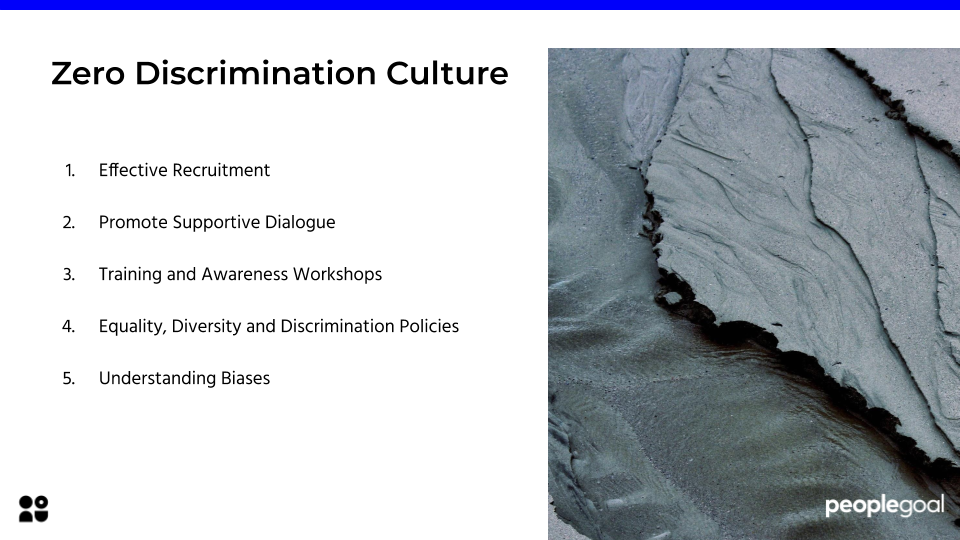Company culture (or organizational culture) is defined differently for every business. When asking, “What is company culture?” it can broadly be described as the personality of an organization. It encompasses everything from the company’s values to its strategic objectives, ways of working, leadership styles, operational policies and the unwritten beliefs and assumptions of the organization. It’s often implied, not outright stated, and it’s far more about how the company operates than what the company says it is.
Two definitions of company culture that sum up its fuzzy definition are:
“The intangible glue that holds all of the pieces of a company together.”
— Ilene Marcus, Founder & CEO of Aligned Workplace
“The “how” of everything you do.”
— Kathy Taberner, Co-Founder of The Institute of Curiosity
Company culture also differs as a result of the geographical, social, political and industry spaces in which the organization operates. Assumptions of ways of working are very different in Europe compared to the US and this can go as far as influencing where you want to live – if you’re lucky enough to choose which of a company’s offices to work in.

Why is company culture important to you as an employee?
You spend a third of your day at work. Shouldn’t you be making this worthwhile? As much as you can control your own environment, company culture is the single biggest factor in determining whether you’re going to thrive, develop and (mostly) enjoy your time for 8 hours of a day! Your work satisfaction comes from more than just your salary, and you really shouldn’t dread going in to work every day. When your working style, leadership type and intrinsic values align with the organizational culture you’ll find it easy to be efficient, productive and self-motivated. When it’s not a good fit you’ll struggle with even the most basic tasks and spend far too much time negotiating office politics and managerial conflicts.
A few benefits of a good culture fit include:
- Increased engagement and productivity. Culture impacts how you interact with your colleagues, how the organization values your contribution and how you see yourself as supporting the broader strategy.
- Retention. Feeling supported and energized about your work will of course lead to a longer career within the company, especially if your leadership ambitions align with the organization’s succession plan.
- Skills development. A good culture fit will always drive your own self-development and make sure you’re learning the best skills for your current and future roles.
As a leader, if you’re interested the importance of company culture, read more from Jeshua about how Human Resources and leadership teams can shape organizational culture.
How can you really get to know a company culture?
First you need to reflect on your own working style and what you value from your working life. Don’t be influenced by what you think it should mean to be a good employee – trying to adapt your inherent beliefs to an outside idea of value just leads to dissatisfaction, no matter how great the quality of your work is. For example, self-leadership is an amazing skill for those who thrive on responsibility and self-learning. But not everybody is naturally good at that, and if you find you need the support and direction of a great manager you’re much better off looking for an organization that values mentorship and trains up good managers.
A couple of areas to consider include:
- How you work best: do you enjoy bouncing ideas off of teammates? Or do you like to work on solo projects that make up a part of the wider team goals?
- Where you work best: a busy, open-plan office buzzing with activity? A quiet space to focus on one task at a time? Your own home? (In which case remote working opportunities definitely need to be a part of the company culture).
- How you communicate: are you comfortable with giving and receiving direct, constructive feedback? Or do you prefer to speak privately with supervisors to address conflicts?
- Your career progression: does a hierarchical company structure with clearly defined roles, responsibilities and a succession plan work for you? Or do you want a looser structure with room for self-development and skills advancement?
Once you’ve identified the type of culture you want to contribute to, it’s time to research prospective organizations.
👉 Click here for 6 examples of constructive feedback to give during performance reviews
Research the company
Check out the company website, especially the About Me section. Most companies will post their story, their reasons for existing and what they value as an organization. Lots of companies publicly post their culture and values documents – like Netflix and Google. Basecamp made their entire employee handbook open source and it’s an amazing insight into a company that really values its employees, their work-life balance and Basecamp’s responsibilities as an employer.
Next, search for sources outside of the company website. You can find out if a company actually walks the walk in terms of what they state their culture is – many fall down in this regard. Glassdoor is a good place to start to hear from actual employees of the organization. Other external sources can be product reviews (i.e. does the company value customer satisfaction?), financial reports, social activity on LinkedIn, and opinion pieces like the one we published on great HR lessons to learn from Patagonia.
The Job Interview
The interview is as much about you evaluating the company as it is the company interviewing you. It’s a chance for you to see for yourself how company culture is put in practice and whether you’ll be a good fit with their vision and values. Forbes has a great guide to help you judge a company based on their interview process which includes being aware of the interview style, how transparent the interview is and whether any topics are actively being avoided.
You should also come through with questions of your own, such as:
- What is the working environment like? How do you do your best and most productive work, and do they support that?
- How does the organization demonstrate its core values in its behaviour? Does it have the systems in place to support the communication style they want?
- Continued learning and development. Is this an important part of the company’s performance management style, or is this expected of you to do on your own time?
- How are employee voices heard in the organization? What’s an example of a time employee feedback was taken on board and what action came out of it?
- Company ethics and values. What are their ethical policies, and do these align with your own beliefs?
- The organizational strategic direction. Do you like where this organization is going? Is it clear to you how you would be supporting this vision?
You’ll never be able to get a completely impartial picture of a company culture until you work there, but a bit of background research and knowing what you want means you’ll be able to rule out organizations that definitely don’t fit your ideals, ethics and values. Getting the right culture fit will be an amazing step in making the most out of your time at work.
Ready to 3x Your Teams' Performance?
Use the best performance management software to align goals, track progress, and boost employee engagement.






